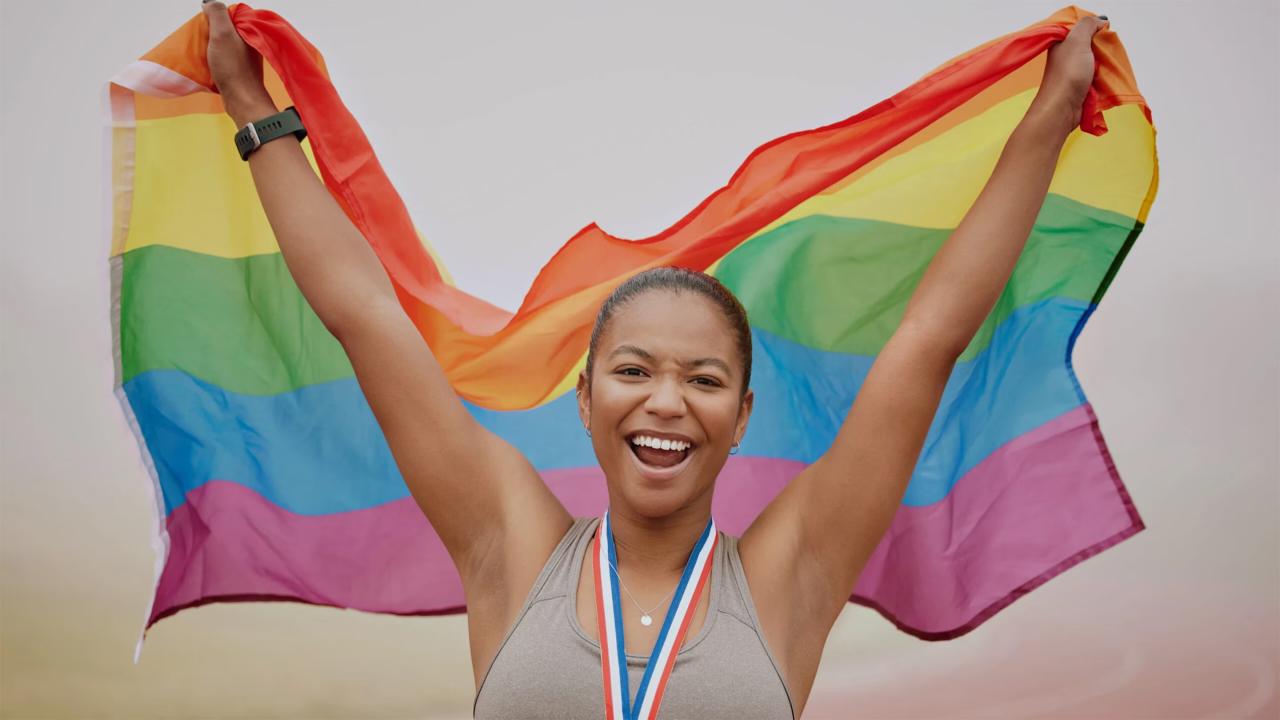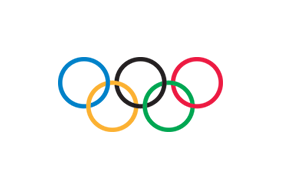The Olympic Games Celebrate Diversity on the Global Stage
Lesbian, Gay, Bisexual, Transgender and Queer (LGBTQ+) Pride Month, celebrated in June, is an opportunity to reflect on how the Olympic Games foster inclusion.
Published 07-31-23
Submitted by International Olympic Committee
©Paris 2024
International Olympic Committee news
A cornerstone of the Olympic Movement is the belief that sport has the power to bridge divides and promote harmony among people from diverse backgrounds. These values are reflected in both the Olympic Charter and Olympic Agenda 2020+5, which recognises that gender equality, inclusion and diversity are integral components of the IOC’s vision of building a peaceful and better world through sport.
Pride at Paris 2024
The upcoming Olympic and Paralympic Games Paris 2024 will further highlight the importance of inclusion within the Olympic Movement, with “Games wide open”, the Paris 2024 slogan, underlining the organisers’ commitment to the fight against discrimination. To mark the International Day against Homophobia, Transphobia and Biphobia on 17 May, Paris 2024 announced the creation of the Pride House: a dedicated space at the Games to celebrate LGBTQ+ athletes, entourage members, fans and allies.

The Pride House will be at the heart of the Games, located at Parc de la Villette – close to competitions venues such as La Chapelle Arena, Stade de France and La Concorde. Led by the Fier-Play association – a French not-for-profit initiative dedicated to fair play, equality and respect – in partnership with Paris 2024, the Pride House will offer a programme of celebratory, cultural and educational activities focused on inclusive sport.
Its objectives are:
- to provide a safe space for the LGBTQ+ community;
- to empower athletes;
- to celebrate the Games and the performances of LGBTQ+ athletes;
- to educate on the inclusion of LGBTQ+ people in and through sport; and
- to build awareness and visibility, leaving a legacy for the international sports movement.
Games for all
To ensure that the message of inclusion and diversity is accessible to all at the Games in 2024, in addition to the permanent Pride House in the centre of Paris a mobile Pride House will pop up around different Games venues and throughout the city, and a digital Pride House will be available on smartphones.
“At Paris 2024, we are convinced that sport changes lives, and that it is also a formidable tool for changing mentalities and contributing to the fight against discrimination,” said Paris 2024 President Tony Estanguet on announcing the creation of the Pride House. “As organisers of the world's biggest sporting event, we have a responsibility, and we also want to take advantage of the visibility of the Games to advance this essential fight.”
The Pride House is just one of the many initiatives embraced by Paris 2024 and its stakeholders in the fight against discrimination, which include the signing of the LBGT+ Commitment Charter by Paris 2024 as an employer, and the work of the Paris 2024 Endowment Fund, which each year supports a number of projects using sport as a tool for inclusion.
Pride House Tokyo’s lasting legacy
The Paris 2024 Pride House follows a strong tradition which stretches back to the first Pride House at the Olympic Winter Games Vancouver 2010, and will build on the success of the Tokyo 2020 equivalent, which has provided a powerful Games legacy of inclusion and diversity after being turned into Japan’s first permanent LGBTQ+ support centre.
Since these Games, which included the largest number of openly LGBTQ+ athletes ever to compete at an edition of the Games, Pride House Tokyo has run a number of projects and programmes, including a counselling service for LGBTQ+ young people and educational seminars for sports bodies; and in June 2022 it signed an agreement with the Japanese Olympic Committee to promote inclusiveness in sport across Japan.

International Olympic Committee
International Olympic Committee
The International Olympic Committee (IOC) is a not-for-profit independent international organisation that is committed to building a better world through sport. It redistributes more than 90 per cent of its income to the wider sporting movement, which means that every day the equivalent of USD 3.4 million goes to help athletes and sports organisations at all levels around the world.
As the leader of the Olympic Movement, the IOC acts as a catalyst for collaboration between all parties of the Olympic family, from the National Olympic Committees (NOCs), the International Sports Federations (IFs), the athletes and the Organising Committees for the Olympic Games (OCOGs) to the Worldwide Olympic Partners, broadcast partners and United Nations (UN) agencies, and shepherds success through a wide range of programmes and projects. On this basis, it ensures the regular celebration of the Olympic Games, supports all affiliated member organisations of the Olympic Movement and strongly encourages, by appropriate means, the promotion of the Olympic values.
More from International Olympic Committee

